Hello,
Please contact the surgeon or your vet ASAP. Really. ASAP. This doesn’t sound normal and an exam is indicated. Good luck.
Hi,
My cat is 4 years old and she’s approximately 17 pounds. i want to bring her to around 10 pounds so she can live a healthy life. I want to change her diet from Dry food, what do you suggest? currently she eats Friskies 3 times a day (a hand full each time).
Comments
My 4yo Labrador Retriever Hank recently (two weeks prior) underwent a Tibial Plateau Levelling Osteotomy (TPLO) to repair the torn cruciate ligament in his back left knee. He gradually increased activity in the affected leg, but now seems as if his progress has halted. He’s very hesitant to put anymore weight on that leg. He won’t walk up a small step to get into my bedroom (this was the case before the surgery too). He moves around somewhat freely in the yard, but reverts to standing on three legs or doing a three-legged hop to move around at times. He has taken a bad step two to three times that resulted in a loud cry out. He must be coaxed to move around at all and appears to have developed a plum-sized seroma at surgery site of the infected knee. Could this be leading to the halt in activity/progress? He allows me to massage the muscles above and below the affected knee. We have also been doing some range of motion exercises on both legs.
Seroma?: He allows me to touch it and it is soft to the touch. It feels like a water balloon filled with a slightly more viscous fluid. It is directly above the incision site and the fluid appears to rest directly on top of the knee joint. Per vet recommendation, I discontinued the use of Rimadyl to try to reduce the size of the seroma.
Other symptoms: Licking at the base of tail to the point of seeing some blood in his fur. Excessive licking of the blanket he sleeps on.
Comments
I have a female labrador,3.5 years old and has given birth to 9 puppies a month ago,I’ve recently noticed a growth on her vagina and worried about the same.What should I do?
Comments
My cat bandit has trouble breathing and is wheezing and making snoring sounds when he is awake. He wont groom himself and sheds terribly. When we took him to the vet after their tests they concluded its probably polyps in his nose or throat and suggested a specialist who wants over a thousand dollars for a ”special” surgery but when i did some research online i watched a video of Dr. Krista Magnifico removing a polyp from a cat which took 3 mins and was 130$ total cost. I live in the Atlanta Ga, area and was hoping y’all had suggestions of somewhere close to me that can do the same wonderful, skillful job Dr. Magnifico performed for around the same price range. I know this problem is bothering my poor bandit and i just want him to be healthy and happy and i know getting this removed is the key.
Comments
My dog is 6 months old roughly and she started her heat cycle for the first time 6/10/21 and her brother (unaltered) and her got “stuck” few days ago I know she is pregnant and she started to lightly spot blood Yesterday. What could happen from this besides the fact That puppies may not make it? Also she is pitbull/ rottweiler mix
Comments
Hi, my cat Daisy recently had major dental surgery to remove 12 of her teeth. She did well through it but shortly after started to pull her hair out as she grooms. Wherever she has rested there are clumps of hair and it’s primarily on her thighs. She’s eating well, acting normal and using the litter box normally. Can you help?
Comments
My rescue cat is estimated to be about 3 years old. Pembroke has had breathing issues since I adopted him. It started with a URI which was treated successfully. But then the snoring started. He also shakes his head frequently and itches his ears. I had a full body x-ray as well as blood work done on him. I can visibly see a blockage in his left nostril but no vet in my area has been willing to figure it out without me going to a specialist for an endoscopy. However, this could just be nasal inflammation (according to 1/3 different vets I’ve gone to) because I was told based on the x-rays there is no growth. Am I crazy for wanting to try and get more answers before spending $2000 on an endoscopy? Ive already spent thousands on this little one and I’ve only had him for a few months. I’m in the Greater New Orleans area. I will attach his x-ray photos. He also has an abnormally large kidney but all of his blood and urine levels were fine. They recommend an abdominal ultrasound but I am trying to prioritize his breathing issues as this is hard to watch when he’s sleeping. He acts completely normal but when he is asleep it is apparent his breathing is difficult. I can also hear him do big swallow that sound like he has post nasal drip. He sneezes often but he never has any discharge/snot.
Comments
So our little Morkie Stella had jumped from my arms and landed wrong on her hind leg. She then proceeded to have trouble walking on it and has been limping. It seems to be affecting her joint. She’s not crying out in pain, but is not putting any pressure on her leg. Her hip felt stiff under my fiance’s grasp.
I am freaking out, unsure of what to do. She’s not shrieking when we touch it. She’s just complying
Comments
My 16 year old cat has been diagnosed with some kind of nasal cancer. I don’t know which specifically because I didn’t want to pay for the tests that would specify which kind. Regardless, we are not treating the cancer; we are giving her supportive care. She is currently on steroids (prednisolone) and painkillers (gabapentin). With all of this, she has recently had a new symptom: a bulging of the bridge of her nose. At first, I thought it might be the cancer, but then one day, it popped open, and started leaking fluids (probably blood mixed with other things). I gave her first aid, and it healed. Now, it’s doing it again, but the fluid is building back up, even after leaking out. I called the vet after the first time this had happened, and was told that things like this would keep happening, and that she’s probably near the end of her life. Nothing about what it could be or how to handle it.
So my questions are, should I see a different vet? Does the pressure cause her pain? Is there some way to treat this? I haven’t euthanized her yet, because she still seems to enjoy life.
Comments
i believe my cat has hepatic hepatic lipidosis lost alot a weight had her to two vets in the past year that did nothing i thought she was doing better but this past month she has lost a lot of weight only 5 pounds she eating but not as much i say hepatic hepatic lipidosis because the last vet said her liver reading was off wanted 800.00 for a biopsy after i already paid for 400.00 for blood work i couldn’t afford it i lost my job during pandemic and just can’t afford a vet visit at the moment anything i can do???








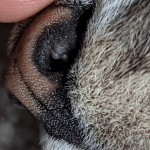
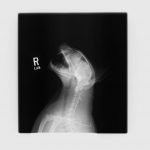
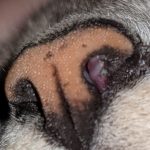
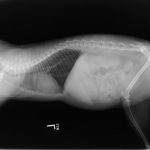
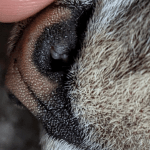

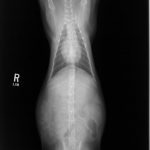
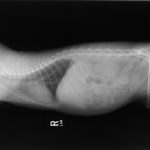
I like science diet, royal canin and wellness. As a general rule. I also think that based on age a visit to the vet and some blood work to check thyroid and kidney function.
Hi i’ve checked out these brands and they’re on the pricier side. Do you recommend boiled chicken instead of their store bought food?
Maham, plain boiled chicken isn’t nutritionally complete. Cats have more strict requirements than other carnivores.